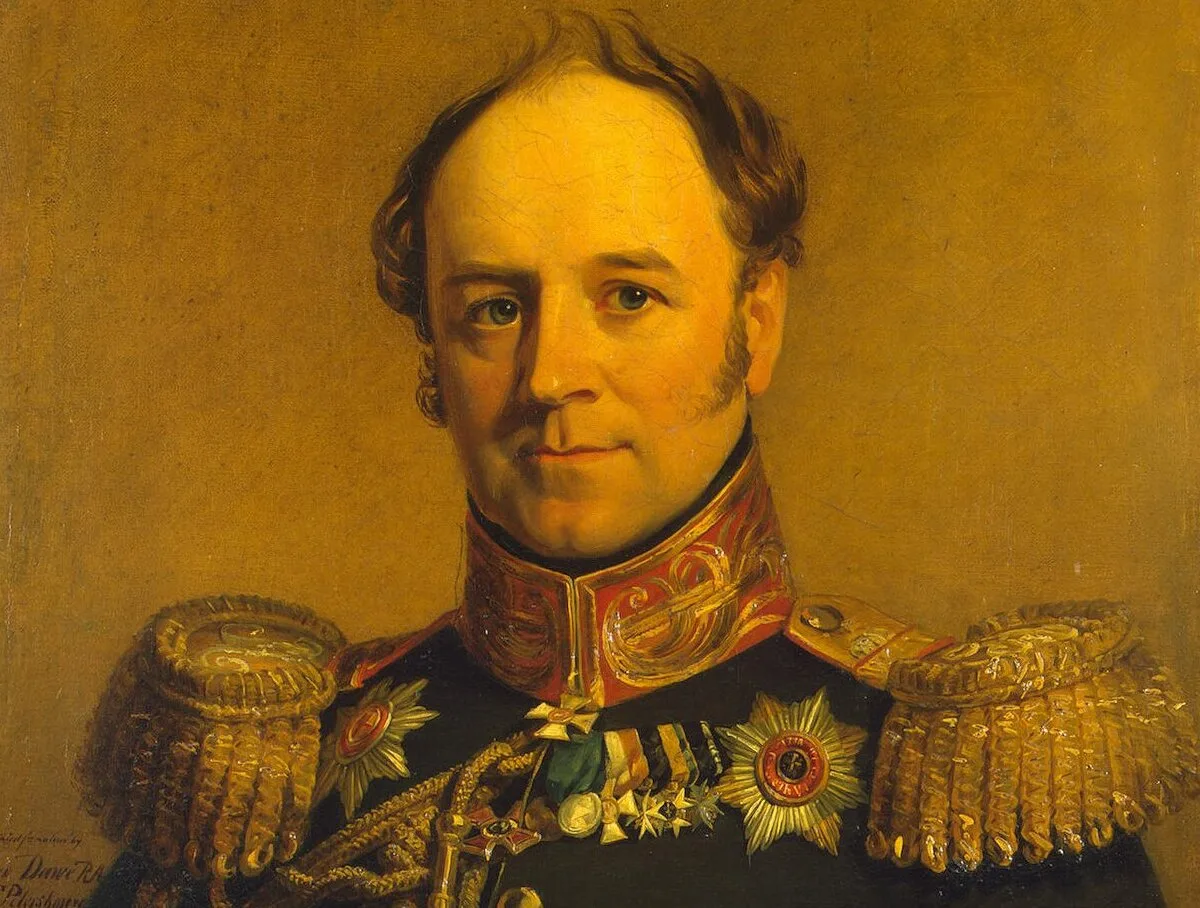For many years now you can find a text on the Internet that is called the appeal of the chief of gendarmes to the Decembrists. In this passage, Alexander Benkendorf reproaches the defendants for hypocrisy and claims that he gave freedom to his peasants. We checked how true this is.
May 19, 2025 at the St. Petersburg International Legal Forum there was a discussion on the topic “Legal ideas of the Decembrists: pro et contra. History lessons." The Minister of Justice of the Russian Federation, Konstantin Chuychenko, also took part in it, who complained that the participants in the uprising 200 years ago were not punished severely enough. Among other things, he said: “The Decembrists were all landowners and owned serfs, but, excuse me, none of them freed their serfs. Meanwhile, Benkendorf, the head of the security department, did it.”
On the Internet, such a contrast can be found in the form of a monologue by Benckendorff, which he allegedly uttered during the first interrogation in the Decembrist case. This monologue is found, for example, in publics in “VKontakte", blogs in LiveJournal And "Zene"and also on entertainment sites.
Internet users present the story about Benckendorf unchanged. It is alleged that during the investigation into the Decembrist case, he gathered all the accused for the first interrogation and made the following speech to them:
“You claim that you have risen for freedom for the serfs and the Constitution? Commendable. I ask those of you who gave this very freedom to the serfs - not to drive them out into the streets so that they would die of hunger under the fence like stray dogs, but to let them go with land, lifts and all possible help - to raise your hand. If there are any, the case against them will be dismissed, since they truly act according to their own conscience. I'm waiting. Is there no one?
How strange... I freed my serfs in Livonia in 1816, and in the Tambov province in 1818. Everyone came out with the land, with initial funds. I paid taxes for each of them five years in advance to the state treasury. And I don’t consider myself a liberal or a liberator!
It's more profitable for me. These people work better for themselves. I make money by grinding, sawing wood, etc. for my former peasants. I have already covered all my expenses and made a profit from all this.
And I don’t go out into the square with crazy statements or protests against the sovereign or, especially, against the empire!..
Since you cannot prove in any way that this matter is political, we will judge you as rebels and traitors to the Fatherland, like Emelka Pugachev. And now - everyone to the cameras! You’ll go along with the criminals, you bastards!”
There are a lot of questions about this monologue. Firstly, numerous stylistic inconsistencies are striking in it: the nobleman Benckendorff, speaking to the nobles, uses vernaculars (“like”, “Emelki”) and allows insults (calling the Decembrists bastards). In addition, his speech is replete with obvious anachronisms: the words “you will go at the same stage with the criminals” would have been uttered, rather, by an NKVD investigator, and not by Benckendorff. The word "criminal" began to be used as a definition of non-political prisoners only towards the end of the 19th century, in the first quarter of the century they were called convicts.
Secondly, in investigative cases Decembrists, no interrogations were recorded at which all the accused were present - in total in the cases of the uprising on Senate Square and the one that began shortly after it riot of the Chernigov regiment There were more than 500 people who were imprisoned in different places. The largest number of prisoners were held at one time in the Peter and Paul Fortress - 156 people. Such a collective interrogation would not have gone unnoticed either in the memoirs of the Decembrists or in the documents of the investigative commission.
Thirdly, Benckendorff, appointed chief of the Separate Corps of Gendarmes only six months after the first arrests, did not have sufficient authority to make such speeches to the accused. The first interrogations were conducted personally by Nicholas I, and the investigative commission led Minister of War Alexander Tatishchev. “Suddenly I saw myself in a brightly lit room, in front of a table covered with red cloth, around which sat all the members of our committee in uniforms and regalia. The presidential seat was occupied by General Tatishchev, on his left hand were Prince A.N. Golitsyn, generals: Dibich, Chernyshev, Benckendorf, on the right - Grand Duke Mikhail Pavlovich, St. Petersburg Governor General Kutuzov, generals: Levashov, Potapov, adjutant adjutant Adlerberg, ”decembrist Nikolai recalled his first interrogation Basargin.
But the main question is whether Benckendorff freed the peasants who belonged to him. In the above monologue it is stated that the future chief of gendarmes gave freedom to the serfs on his estates in the Livonia and Tambov provinces. However, in memories Benckendorff doesn't say a word about this. In his “Notes” he mentions a visit to one of the estates in 1823: “I went to the Tambov province to visit the lands that my brother and I inherited from my father. I found the local peasants in a state of remarkable prosperity; they honored the memory of our father and asked only for the continuation of their happy life, the benefits of which he allowed them to enjoy.” From this passage it is impossible to draw an unambiguous conclusion about whether the peasants received their freedom, but it is doubtful that Benckendorff would not have mentioned this. As for the peasants of the Livonia province, in this part of the Russian Empire serfdom is already was canceled in 1819, six years before the Decembrist uprising.
In addition, in the same “Notes” there is a fragment dedicated to the Decembrists and their ideas of liberation of the peasants. From this passage we can conclude that Benckendorff was their opponent: “In many provinces, deceived by ill-wishers or seduced by false hopes, peasants considered it possible to demand freedom for themselves and refused to obey their owners.” These lines were written in 1826, after the first interrogations in the Decembrist case.
As for the monologue attributed to Benckendorff, this text appeared on the Internet only in the 2010s. The earliest mention that we could find of “Verified” was a publication on the website “Esdek"in 2010. It states that the fragment was taken from the Internet notes of the writer Alexander Erdimtovich Bashkuev. In 2001, Bashkuev published on the Internet a book about Benckendorf, written in the genre of alternative history. There is no specified passage in this work, but the monologue that went viral on social networks is very reminiscent of the style of the book, replete with deliberate anachronisms and very freely handling historical facts.
Thus, there is no evidence that Benckendorff freed his peasants and spoke about this during the first interrogation of the Decembrists. The only mention of this is contained in a passage popular on the Internet, the authorship of which is attributed to the general without any basis. In fact, this text most likely belongs to the writer who put his thoughts into the mouth of Benckendorff.
Cover photo: J. Doe and workshop, Military Gallery of the Winter Palace, Hermitage, St. Petersburg
Read on topic:
If you find a spelling or grammatical error, please let us know by highlighting the error text and clicking Ctrl+Enter.






